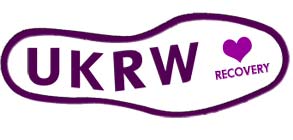
The most effective ways to deal with poverty, declining economic opportunity, and community rebuilding originate from within the community. The most efficient way of administering these solutions is by and through the community. Community programs often lack breadth, their ability to reach many, because they lack that one important resource that frequently determines whether a program will last or perish.. MONEY!!. WE NEED POLITICO-ECONOMIC INNOVATION! ANY ONE UP FOR IT?
Monday, 23 May 2011
Thursday, 19 May 2011
What is Your Recovery Quotient?
Scroll to the bottom of the Bills page to find the link to this fun quiz (that is if your not distracted by everything else that I'm sure will interest you,
http://www.williamwhitepapers.com/papers/
The author says.....The certification exams used to judge the competency of addiction professionals (from addiction counselors to physicians specializing in addiction medicine) rely almost exclusively on questions that test one’s knowledge of the psychopharmacology of drugs, addiction and its related pathologies and the theories and methods of addiction counseling and treatment. Striking by their absence are questions about the stages, styles, pathways and processes of long-term recovery and the history and philosophies of American communities of recovery.
The following questions were developed in an afternoon of musing about the recovery quotient of addiction professionals and what an exam would look like that tested knowledge related to the history, theory, science and practice of non-clinical recovery support. There is nothing magical about these particular questions; I suspect on another afternoon I might come up with a quite different list of questions. But the questions included will sensitize the reader to the central point of this exercise: there is a body of knowledge about recovery that is quite distinct from the bodies of knowledge about addiction and addiction treatment.
The intent of this little quiz is to stimulate interest in the lived solutions to the problems many of us have devoted our lives to addressing. So take a few moments and evaluate your recovery quotient. Most of the topics imbedded in these questions are discussed in the papers posted at www.williamwhitepapers.com,
Please have a look or 2 and enjoy.
Toward Recovery-focused Education of Addiction Professionals
And Recovery Support Specialists
William L. White
(March 2012)
http://www.williamwhitepapers.com/papers/
The author says.....The certification exams used to judge the competency of addiction professionals (from addiction counselors to physicians specializing in addiction medicine) rely almost exclusively on questions that test one’s knowledge of the psychopharmacology of drugs, addiction and its related pathologies and the theories and methods of addiction counseling and treatment. Striking by their absence are questions about the stages, styles, pathways and processes of long-term recovery and the history and philosophies of American communities of recovery.
The following questions were developed in an afternoon of musing about the recovery quotient of addiction professionals and what an exam would look like that tested knowledge related to the history, theory, science and practice of non-clinical recovery support. There is nothing magical about these particular questions; I suspect on another afternoon I might come up with a quite different list of questions. But the questions included will sensitize the reader to the central point of this exercise: there is a body of knowledge about recovery that is quite distinct from the bodies of knowledge about addiction and addiction treatment.
The intent of this little quiz is to stimulate interest in the lived solutions to the problems many of us have devoted our lives to addressing. So take a few moments and evaluate your recovery quotient. Most of the topics imbedded in these questions are discussed in the papers posted at www.williamwhitepapers.com,
Please have a look or 2 and enjoy.
Toward Recovery-focused Education of Addiction Professionals
And Recovery Support Specialists
William L. White
(March 2012)
Sunday, 15 May 2011
UK Recovery Federation: 2nd Recovery Summit
All Nations Centre, Cardiff
‘Many Pathways to Recovery: Building on our Strengths’
Key note speaker: Keith Humphreys (Career Research Scientist, US Veterans Health Administration, Professor of Psychiatry at Stanford University US
Presentations (speakers to be announced):
Participative workshops (exploring real-life recovery experiences, the theme of the conference and discussing/developing the draft UKRF Recovery Consensus Statement):
Reflection, conversations and the chance to make new friends and contribute to the development of Recovery Networks in the UK
If you are interested in having a stall, performing, being involved, sponsoring or volunteering to help on the day or in any other way, please get in touch, all interest and enquiries welcome!
Monday, 9 May 2011
Wired In Unplugged: go compare!
Wired In Unplugged: go compare!: "I was having a trawl through some old posts - it's a fine way to spend a Sunday afternoon, and I found this interesting: ' The Wired In to ..."
Tuesday, 3 May 2011
Wired In Unplugged: Being Charitable?
Wired In Unplugged: Being Charitable?: "Wired In and David Clark Following our last blog entry, and ongoing questions of David Clark about the Charitable status of Wired In, ..."
Monday, 2 May 2011
Subscribe to:
Comments (Atom)


